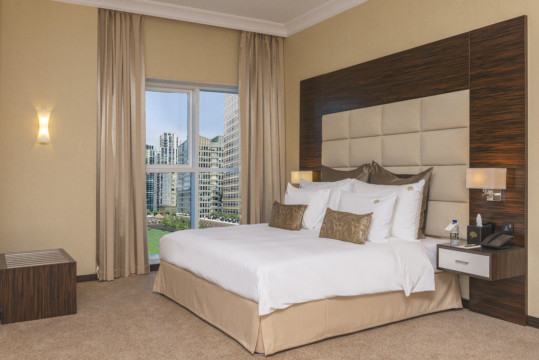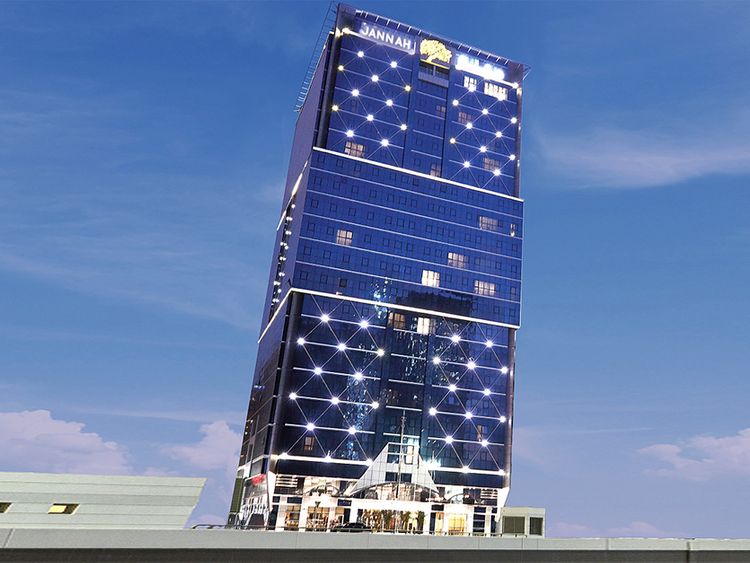
ABU DHABI: After three futile months of house-hunting, Algerian Abed Hassan finally moved into a hotel apartment in Abu Dhabi last month.
His new fully-furnished spacious one-bedroom ‘home’ comes with room service, high-speed internet connection, health club and even valet parking – all at a price similar to that of a residential one-bedroom flat. No wonder Hassan says he will never consider living in residential apartments again.
“The Dh125,000 annual rent I pay for my one bedroom in a hotel apartment is a deal. Any other decent residential apartment costs almost the same but comes with none of the luxuries I get here,” Hassan, a project manager, told XPRESS.
In a high-rent market like Abu Dhabi’s, hotel apartments that come with the flexibility of payments – monthly or annual – and an array of luxury services to add, are becoming a preferred living option for many residents and long-term tourists. Respite from the capital’s awful parking problems is a cherry on the cake.
“I moved into a hotel apartment eight months ago mainly to avoid unpredictable rent increases. Earlier I had been living in a two-bedroom apartment near the corniche for four years, but my landlord hiked the rent by 35 per cent. So I moved out,” said businessman Vivek Mishra, an Indian expat. “And parking was a daily nightmare.”
Perks galore
“Why would I pay Dh130,000 or Dh150,000 for a two-bedroom flat in a residential building with no extra perks? Now for a similar rent I save on utility bills and parking fees. Plus I have room cleaning service once a week and even get my car valet-parked. And my investments in furniture are zero,” said Mishra.
The average annual rent of a premium one-bedroom unit in a hotel apartment ranges from Dh100,000 to Dh130,000 in Abu Dhabi. While a two-bedroom hotel apartment is available for Dh140,000 and above, a three-bedroom will cost anything over Dh150,000.
When you compare these figures with the residential rents in premium areas like Reem Island, Al Raha or Corniche, industry players say hotel apartments make much better financial sense.
They say that hotel apartments are stealing the realty show by providing customers the best of both worlds.
“It is like living in a cosy home but with all the luxuries and services you get in a hotel,” said Nehme Imad Darwiche, CEO of Jannah Hotels and Resorts that recently launched 110 studio hotel apartments within its five-star hotel, Jannah Burj Al Sarab, on Mina Street near the Abu Dhabi corniche.
The units costs Dh85,000 per year, which is payable in monthly instalments. The price includes access to the hotel’s five-star services and amenities, including laundry, housekeeping, 50 per cent discount on hotel food and beverage, and high-speed internet connections at 1.2 GB per second.
“Our market research indicates the next biggest trend to win over the real estate market in Abu Dhabi will be hotel apartments. There is an imbalance in demand-supply and we have launched the studios to fill in that gap,” said Darwiche.
“The flexibility of monthly payments that even allow residents to make credit card payments and win points is a huge advantage,” he said.
According to Darwiche, in the last few years hotel apartments have even outperformed five-star hotels in terms of occupancy rates.
A senior sales manager at Vision Hotel Apartments said their two hotel apartments and five furnished apartments enjoy 95 per cent occupancy round the year.
“There is definitely a boom in the hotel apartments market. The steep rental increases and the demand-supply imbalance are luring many long-term tourists and residents to opt for hotel apartment stay,” said the manager.
But Ben Crompton, managing partner at Crompton Partners Estate Agents, begs to differ.
“The occupancy rates in hotel apartments have fallen drastically in recent years. And many of them are moving toward yearly contracts to sustain their business,” he said.
“I think this segment mostly caters to long-term business tourists, single men or working couples. There are not many two- or three-bedroom hotel apartments meant for families, ” said Crompton.













